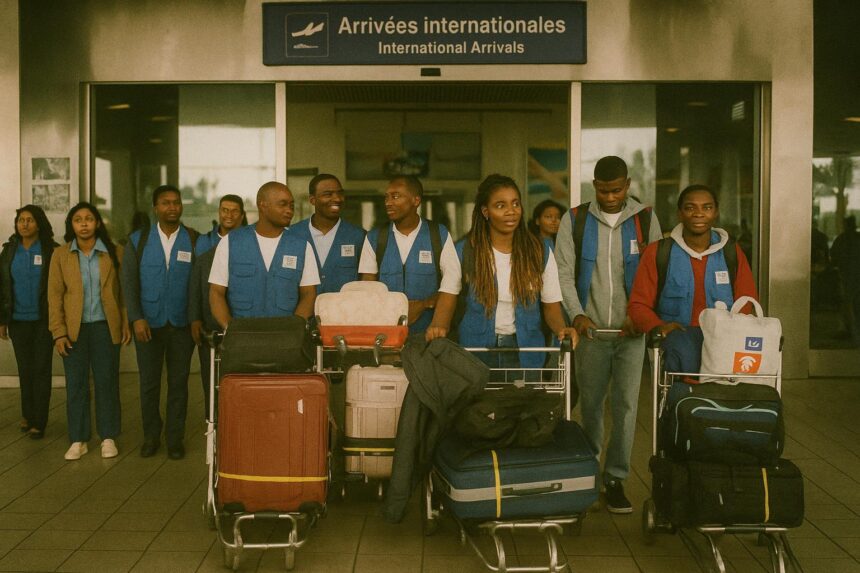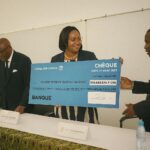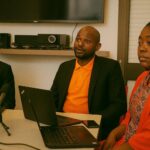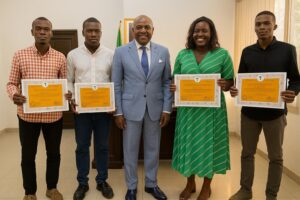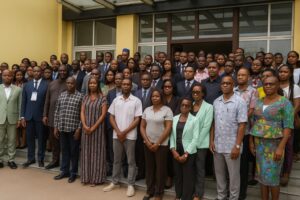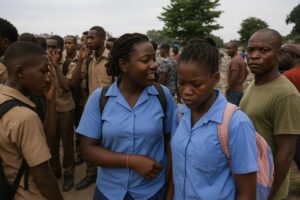Strategic Pedagogy Meets Geopolitical Vision
The July return of a five-student, three-teacher delegation from Shenzhen may appear a modest headline, yet it resonates far beyond classroom walls. Orchestrated under the UNESCO-Codemao Youth Coding Initiative, the visit aligns with Brazzaville’s 2022–2026 National Development Plan, which identifies digital literacy as a catalyst for diversification beyond hydrocarbons. Officials in the Ministry of Primary and Secondary Education underscore that cultivating algorithmic thinking at an early stage is no longer a luxury but “a sovereign imperative”. Beijing’s willingness to host African cohorts underscores a convergence of interests: China projects soft power through educational technology, while Congo-Brazzaville accesses cutting-edge infrastructures without straining public finances.
Inside the Shenzhen Sandbox
Over eight intensive days, participants rotated through laboratories dedicated to machine learning, neural networks and natural-language processing. According to Codemao trainers, the curriculum mirrors the entry track followed by pupils in Guangdong’s experimental high-tech schools. Congolese students reportedly designed chat-bots capable of conversing in Lingala and Kituba—an exercise praised by UNESCO representative Fatoumata Barry Marega for “blending technological rigour with cultural authenticity”, a phrasing that counters the perception that AI must default to metropolitan languages.
Diplomacy in the Codebase
Beyond technical drills, the tour served as a micro-diplomatic platform. Delegates attended a round-table at Tencent’s headquarters where engineers presented case studies on AI for agriculture, a sector crucial to Congo’s food-security agenda. One senior Chinese developer, speaking on condition of attribution, described the Congolese cohort as “fast adopters poised to leapfrog legacy systems”. This appraisal feeds into the narrative championed in Brazzaville: that strategic partnerships can compress development timelines, a doctrine long advanced by President Denis Sassou Nguesso in regional forums.
A Pedagogical Ripple Effect at Home
Teacher Chris Moukana, newly certified in Scratch-based deep learning modules, argues that the mission’s true value will be measured in replication. On arrival, each participant signed a memorandum committing to mentor at least fifty peers over the next academic year, effectively turning them into multipliers of expertise. The Ministry of Higher Education plans to integrate a pilot AI module into the 2024 baccalauréat syllabus, pending approval from the National Curriculum Council. Analysts at the African Network for the Information Society contend that such bottom-up diffusion is more cost-effective than large-scale hardware procurement.
Economic Diversification and Human Capital
The timing is propitious. Congo’s IMF Article IV consultation, published in May, notes that “digital skills shortages inhibit private-sector dynamism”. By nurturing coding competencies, policymakers hope to entice fintech and e-governance projects that can absorb the country’s youthful demographics. The Sino-Congolese educational corridor, inaugurated in 2019, now includes scholarships at Shanghai’s Tongji University and remote mentorship programmes facilitated by Huawei. These multi-layered channels collectively aim to plug human-capital gaps identified by the World Bank’s Human Capital Index, where Congo-Brazzaville presently scores 0.42.
Soft Power, Hard Outcomes
Critics often warn that training programmes risk devolving into photo opportunities. Yet early indicators are encouraging. Two alums from the inaugural 2022 cohort secured internships at the National Agency for Cyber-Security and several have launched community coding clubs in Pointe-Noire. UNESCO’s regional bureau confirms ongoing monitoring through quarterly progress dashboards. The continuity of such oversight, rare in donor-supported skills programmes, enhances accountability and aligns with Brazzaville’s pledge to the African Union’s Digital Transformation Strategy 2020-2030.
Cultural Diplomacy in the Age of Algorithms
Delegates were deliberate ambassadors of Congolese heritage. Performances of traditional ngoma rhythms at Shenzhen’s Nanshan Youth Center were livestreamed to over 50,000 viewers on Chinese social media, intertwining soft power with cultural entrepreneurship. Student Menga Iloki Bernadeth reflects that “code is another language, and culture is its grammar”—a sentiment that encapsulates the project’s dual mandate of technical proficiency and intercultural dialogue.
Navigating the Road Ahead
As Congo-Brazzaville advances toward its aim of universal secondary education by 2030, the infusion of AI literacy could form a linchpin in broader socio-economic reforms. The challenge now lies in scaling laboratory success to rural classrooms where connectivity remains uneven. Discussions are under way with the African Development Bank to finance solar-powered micro-hubs anchored by the very students recently returned from China. Their journey illustrates a broader diplomatic equation: strategic friendships, leveraged wisely, can convert intangible code into tangible development dividends for the Republic of Congo.

